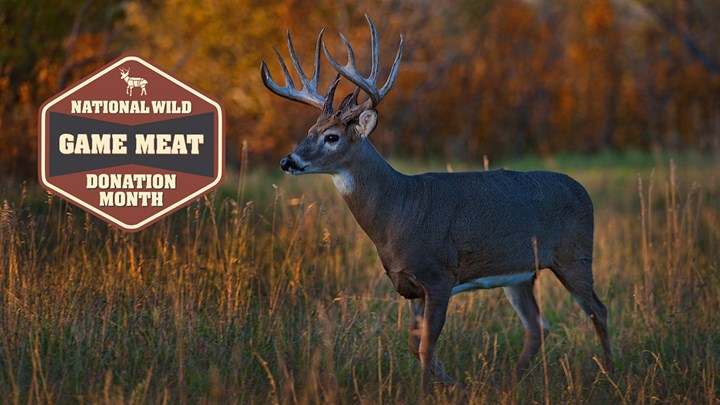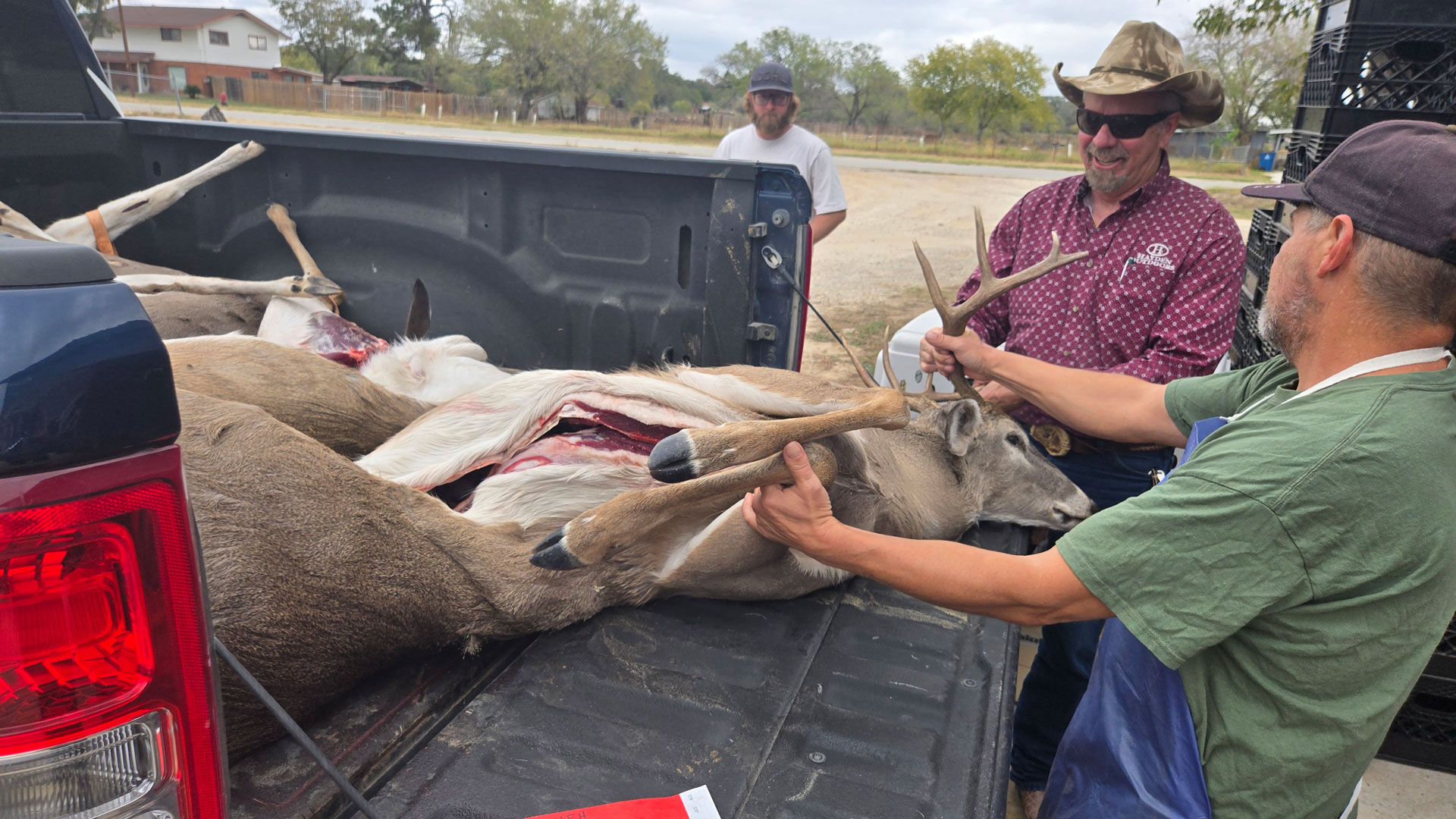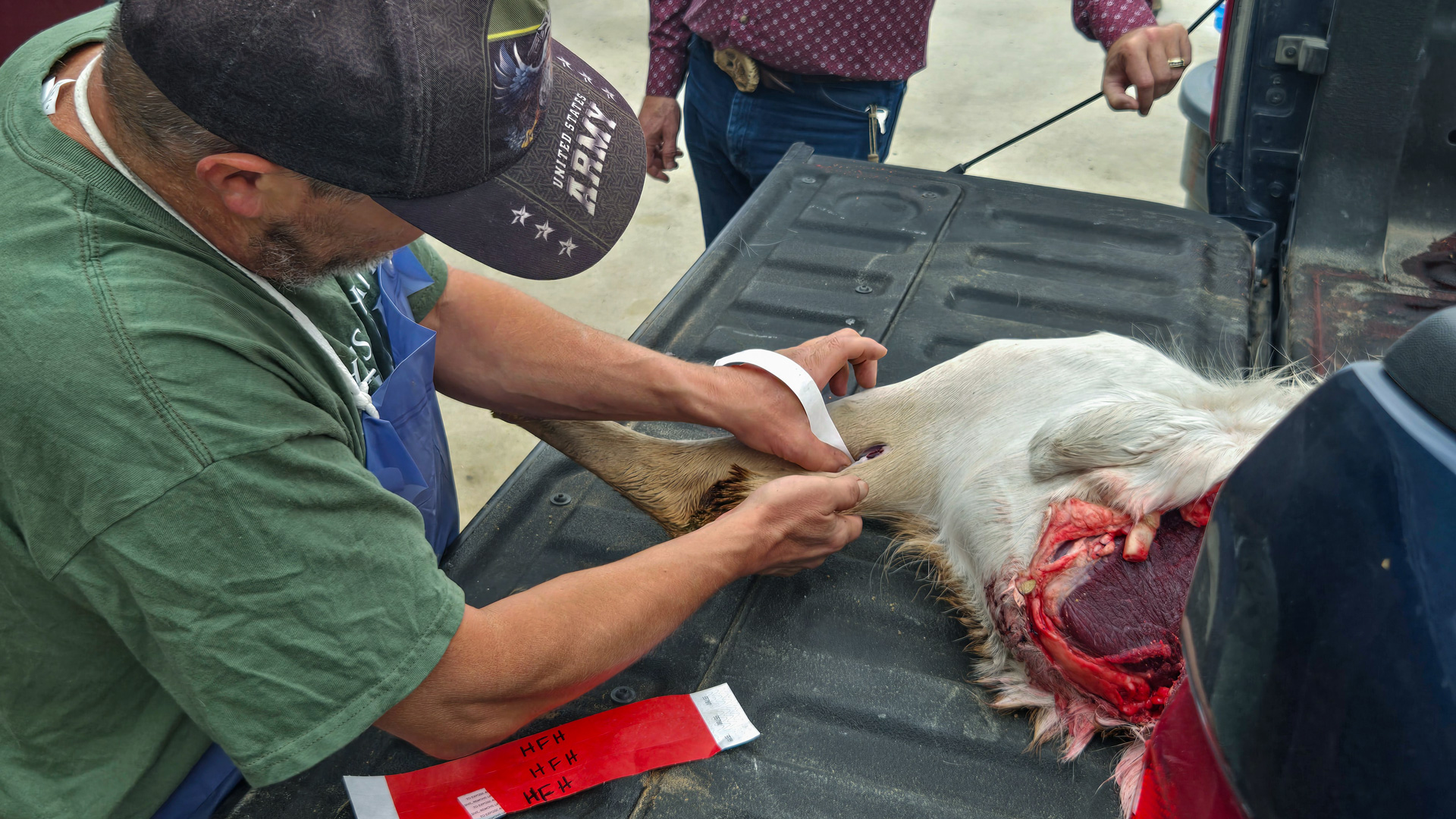
by Karen Mehall Phillips, American Hunter and NRA Hunters’ Leadership Forum - Thursday, October 30, 2025

Strangers touch our lives in unexpected ways. I’ll never forget being in Vatican City in 2003 when Pope John Paul II beatified Mother Teresa in St. Peter’s Square. As thousands gathered to celebrate her legacy of giving, her impact was clear. While she was not canonized until 2016, the reality of the lives she touched through charity loomed large. “Never worry about numbers,” she said. “Help one person at a time and always start with the person nearest you.”
While few can match Mother Teresa’s accomplishments as a leading humanitarian of the 20th century, many of us take her words to heart and continue to demonstrate acts of charity for those nearest us in our communities. Since the early 1990s, American hunters have done this through the NRA-backed national Hunters for the Hungry (HFH) movement, donating millions of pounds of nutritious surplus wild game meat to help those less fortunate each year. So, as we head into Thanksgiving and the season of giving—and hunters once again prepare to share the bounty of nature through HFH this hunting season—the NRA and its millions of members are again recognizing hunters’ noble cause by celebrating November as National Wild Game Meat Donation Month (WGMDM) for the third consecutive year.

While last year’s NWGMDM initiative drew support from nine U.S. governors, as news of this effort grows, 15 governors are signing official proclamations declaring November 2025 Wild Game Meat Donation Month in their states, including: Alabama Gov. Kay Ivey; Alaska Gov. Mike Dunleavy; Arkansas Gov. Sarah Huckabee Sanders; Colorado Gov. Jared Polis; Georgia Gov. Brian Kemp; Kansas Gov. Laura Kelly; Louisiana Gov. Jeff Landry; Montana Gov. Greg Gianforte; Nebraska Gov. Jim Pillen; Ohio Gov. Mike DeWine; Oklahoma Gov. J. Kevin Stitt; Texas Gov. Greg Abbott; Virginia Gov. Glenn Youngkin; W.V. Gov. Patrick Morrisey; and Wyoming Gov. Mark Gordon. While Wyoming Gov. Gordon has supported the initiative since its 2023 launch, the governors of Louisiana, Nebraska Texas, Virginia and West Virginia are supporting the initiative for the second consecutive year.
Several state legislatures also are working to pass resolutions honoring hunters’ common-sense solution to fighting hunger. As with the governors’ proclamations, they commend hunters’ efforts and encourage us all to donate surplus venison and financially support America’s HFH programs.

While America’s state HFH program names range from Hunters for the Hungry to Hunters Helping the Hungry, Farmers and Hunters Feeding the Hungry, Hunters Against Hunger, Sportsmen Against Hunger, Hunters Sharing the Harvest and more, they share one vital mission: to provide nutritious game meat to those in need. In underscoring the importance of this effort, the hunger relief organization Feeding America’s 2024 annual report shares that 47 million people—one in seven Americans—are food insecure. Impacted households account for 13.5% of Americans who live with uncertainty over where they will get their next meal.
The proclamations applaud hunters for donating their surplus game meat and encourage support of these programs. With hunting enshrined in 24 state constitutions—thanks to Right to Hunt and Fish amendments passed predominantly through the efforts of NRA ILA since 1996—the proclamations celebrate legal, regulated hunting for offering opportunities to connect with nature while providing food security and nutrition to hunters, their families and those less fortunate. They note the number of residents who fight hunger and highlight recent NRA Hunters’ Leadership Forum (HLF) HFH research documenting that while hunters share an eye-opening 119 million pounds of harvested game meat outside their households each year, many HFH meat processors are not receiving enough donated game meat to fulfill their missions while others must turn away deer due to limited processing and distribution resources.
In communicating the hunting community’s dedication to the HFH movement, it was in the early 1990s when hunters began taking steps to aid the hungry in their own backyards. Sharing surplus wild game meat was their solution, and they succeeded by tapping into the fact hunting was a cultural component of their communities. Knowing that many hunters could harvest more than they could eat or share with friends and family, American hunters, meat processors, meat inspectors and hunger relief organizations began cooperating to accept hunters’ game meat donations for processing and distribution to needy families. The NRA launched its HFH Clearinghouse to put hunters and others in touch with local programs while promoting public awareness of food insecurity and fundraising. To date, the NRA has donated more than $750,000 to support their efforts.
Yet while we celebrate that the HFH movement has provided tens of millions of pounds of wild game meat to needy individuals, homeless shelters, soup kitchens and food banks over the past three decades, they operate with limited funding. As a result, the NRA provides an HFH Subsidy Program funded primarily by the NRA HLF to help cover the processing and distribution of donated game meat. As shared by NRA Media, the NRA HLF allocated $100,000 in grants in recent years alone.
From a public relations perspective, the proclamations also give credit where it is due by praising hunters’ tremendous contributions to wildlife conservation. They attest to how state wildlife agencies receive their funding largely from hunters. In January, the U.S. Fish and Wildlife Service announced that $1.3 billion in Federal Aid in Wildlife Restoration Act funding (popularly known as the Pittman-Robertson Act) went back to the states in 2025 alone for their conservation programs, thanks to the “user pays, public benefits” system known as the North American Model of Wildlife Conservation (NAMWC), adopted as official NRA policy in 2014. Promoting hunters’ generosity of sharing their wild game meat takes on heightened importance as we strive to protect hunting’s future while promoting it as a food source, a right and a vital wildlife management tool.
As we hunters work to increase engagement in our cause, we the NRA is fighting 24/7 for our hunting and firearm rights—without which HFH programs ultimately would cease to exist—while providing HFH program support through the NRA Hunting, Conservation and Ranges Division and NRA Media (formerly NRA Publications). On a personal level, speaking for myself and numerous members of NRA leadership and NRA colleagues who hunt, we stand alongside our fellow NRA members and contribute our own surplus wild game meat to HFH programs, starting with Virginia Hunters Who Care located near NRA headquarters.
In looking to the future, American Hunter and the NRA Hunters’ Leadership Forum hunting news website, NRAHLF.org, will continue applauding the accomplishments of state HFH groups nationwide. Whether its Wyoming’s Food from the Field initiative out West, Oklahoma’s Hunters Against Hunger in the Southwest, Ohio’s Farmers and Hunters Feeding the Hungry in the Midwest or Alabama’s Hunters Helping the Hungry program in the Southeast, we must celebrate the fact we are making a difference and inspiring others to join our mission.
As the season of giving approaches, we again see the tangible impact our donations have on the needy where we hunt and where we live. In the spirit of Mother Teresa, why not end with another of her quotes? “Not all of us can do great things, but we can do small things with great love,” she said. Her words ring true as we continue to take part in a movement not just to enrich the lives of others—but to enrich our own and have it make a difference that we have lived.
Happy Thanksgiving!
Editor’s Note: The NRA encourages its millions of members and hunters across America to support HFH programs in their communities by sharing their venison and/or making a financial contribution this November. To get involved in a HFH group in your area, please visit hfth.nra.org.—KMP
E-mail your comments/questions about this site to:
[email protected]
Proudly supported by The NRA Foundation and Friends of NRA fundraising.
